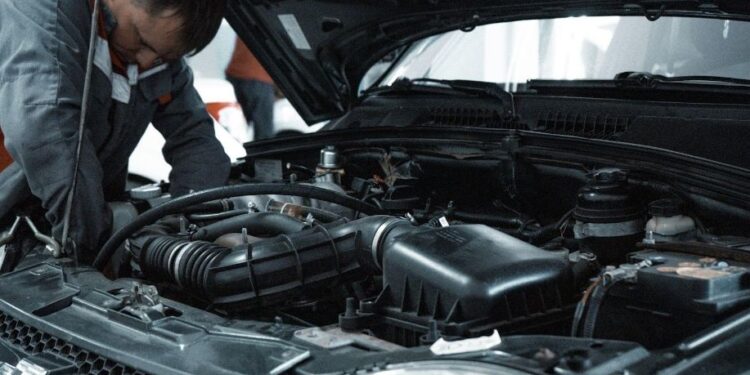As UK drivers, we know that keeping our vehicles in top shape can be a costly endeavor. However, we often overlook small fixes that can lead to significant savings on maintenance costs. By addressing minor issues early, we can prevent them from escalating into major repairs, ultimately saving us time and money.
In this article, we’ll explore practical tips and simple fixes that can help us maintain our cars efficiently. From routine checks to easy DIY repairs, these strategies not only extend the life of our vehicles but also enhance their performance. Even something as basic as choosing the right antifreeze plays a critical role—resources from experts like Jenny Chem help us make informed decisions that protect our engines and improve long-term reliability.
Let’s dive in and discover how these small changes can make a big difference in our overall driving experience.
Overview of Maintenance Costs for UK Drivers
UK drivers face a range of maintenance costs that can impact their budgets significantly. According to a 2022 study by the RAC, the average annual cost of vehicle maintenance for UK motorists is around £1,000. This figure includes routine services, parts replacements, and unexpected repairs.
We identify several key factors contributing to these costs:
- Routine Services: Regular oil changes, filter replacements, and tire rotations typically set drivers back about £250 to £500 annually, depending on the vehicle type and service provider.
- Tire Maintenance: The average cost for a single tire replacement ranges between £50 to £150. Neglecting tire maintenance can lead to higher fuel consumption and increased wear on other components.
- Brake Repairs: Brake pad replacements usually cost between £100 and £300. Regular inspections and timely replacements can prevent more severe brake system failures.
- Battery Life: Replacing a car battery typically costs between £70 and £150. A well-maintained battery lifespan averages 3 to 5 years, and replacing it as needed reduces the risk of unexpected breakdowns.
- Annual MOT Tests: All vehicles in the UK must undergo an annual MOT test, costing roughly £54.85. Passing this test ensures vehicles meet safety and environmental standards.
Minimizing these costs involves proactive maintenance practices. Simple actions, such as checking tire pressures monthly, inspecting lights, and monitoring fluid levels, significantly reduce the likelihood of expensive repairs. By addressing minor issues promptly, we can save substantial amounts on maintenance in the long run, ultimately enhancing our driving experience and vehicle longevity. Consulting resources, such as the RAC’s guide, offers additional insights and tips for maximizing savings on vehicle maintenance.
Common Maintenance Issues
Addressing common maintenance issues helps UK drivers save on significant costs. By focusing on minor fixes, we can prevent larger problems down the road.
Tire Maintenance
Tire maintenance is crucial for safety and cost-effectiveness. Regularly checking tire pressures can improve fuel efficiency and extend tire lifespan. Under-inflated tires lead to increased wear and fuel consumption, while over-inflated tires may cause blowouts. We recommend rotating tires every 5,000 to 7,500 miles to promote even wear. Additionally, inspecting tread depth using the 20p test ensures proper grip and safe handling. Replacing a worn tire can cost between £50 to £150, but maintaining tires prolongs their usable life.
Engine Care
Engine care significantly impacts vehicle performance and longevity. Regular oil changes every 5,000 to 7,500 miles keep the engine lubricated and functioning efficiently. Checking the coolant level helps prevent overheating, which can lead to costly engine repairs. We also suggest monitoring fluid levels, such as brake and power steering fluids, to ensure optimal performance. A well-maintained engine not only improves fuel efficiency but also reduces the likelihood of breakdowns. Ignoring minor engine issues can result in repairs costing anywhere from £100 to £1,000, making proactive care essential.
Small Fixes That Save Money
Addressing small maintenance issues can lead to significant savings for us as UK drivers. Regular attention to our vehicles not only extends their lifespan but also reduces the risk of costly repairs.
Regular Oil Changes
Regular oil changes reduce engine wear and improve performance. We should aim to change the oil every 5,000 to 7,500 miles, depending on our vehicle’s specifications. Neglecting this essential task can lead to engine damage and expensive repairs, potentially costing up to £2,000. Oil changes typically cost between £40 and £80, making it a small investment compared to the long-term savings. Regular maintenance also enhances fuel efficiency, which can yield additional savings at the pump.
Air Filter Replacement
Replacing the air filter is a simple fix that maximizes engine performance. We should replace it every 12,000 to 15,000 miles or as specified in our owner’s manual. A clogged air filter can decrease fuel efficiency by as much as 10%. The cost of a new air filter ranges from £15 to £30, significantly lower than the expenses related to decreased performance. Maintaining a clean filter supports optimal airflow and improves acceleration, directly benefiting our driving experience and wallet.
DIY Maintenance Tips
Proactive vehicle maintenance minimizes costs and enhances performance. Small fixes can prevent larger issues, saving money in the long run.
Basic Tools Every Driver Should Have
We recommend several essential tools for effective DIY maintenance.
- Tire Pressure Gauge: Accurate readings help maintain proper tire pressure, improving safety and fuel efficiency.
- Oil Filter Wrench: Simplifies oil changes, ensuring we can easily replace filters.
- Socket Set: Useful for various repairs, making it easier to tighten or loosen parts.
- Screwdriver Set: Necessary for adjusting components or replacing small parts.
- Pliers: Provide grip and leverage for a multitude of tasks, from removing clamps to holding components.
- Jump Starter: A portable option for quickly addressing battery issues, avoiding the need for a tow.
Investing in these tools allows us to tackle simple tasks, leading to significant savings.
When to Seek Professional Help
We should recognize when DIY efforts aren’t enough.
- Engine Warning Lights: Dashboard indicators often signal serious issues; immediate professional attention is essential.
- Strange Noises: Unfamiliar sounds during operation can indicate mechanical problems that require diagnosis.
- Fluids Leaking: Any noticeable leaks could signal a major issue, like a failing gasket or a malfunctioning system.
- Braking Problems: Issues such as squeaking or grinding noises necessitate expert inspection to ensure safety.
- Transmission Issues: Difficulty shifting gears or unusual behavior should prompt consultation with a professional.
Timely professional intervention can prevent further damage and ensure vehicle safety.
Long-Term Benefits of Preventative Maintenance
Investing in preventative maintenance offers numerous long-term benefits for UK drivers. Regularly addressing small issues enhances vehicle performance and significantly reduces the risk of costly repairs.
Maintaining our vehicles can extend their lifespan, with data indicating that well-maintained cars can last over 200,000 miles. Regular oil changes, for instance, not only ensure smooth engine operation but can also prevent wear and tear, saving us from substantial repair costs down the road.
Conducting routine checks on important components such as brakes and tires provides peace of mind. Keeping tires properly inflated, rotating them every 5,000 to 8,000 miles, and ensuring adequate tread depth enhances safety and fuel efficiency. A well-maintained set of tires can improve fuel efficiency by up to 3%, yielding savings at the pump.
Monitoring fluid levels—coolant, brake fluid, and transmission fluid—is crucial. Neglecting these checks may lead to overheating or mechanical failures, resulting in repairs that can cost hundreds of pounds. Addressing these concerns early prevents potential breakdowns and ensures our vehicles operate optimally.
Regular maintenance also supports resale value. Cars with comprehensive service histories attract buyers willing to pay a premium. According to the Society of Motor Manufacturers and Traders, well-maintained vehicles can retain up to 15% more of their original value compared to neglected models.
Incorporating simple DIY fixes, like replacing air filters or windshield wiper blades, further reduces costs. These small tasks not only improve our driving experience but also enhance overall vehicle reliability. By prioritizing preventative maintenance, we can enjoy safer, more efficient vehicles while keeping our maintenance expenses manageable. For more insights on vehicle maintenance, check out the RAC’s guide for expert advice and resources.













